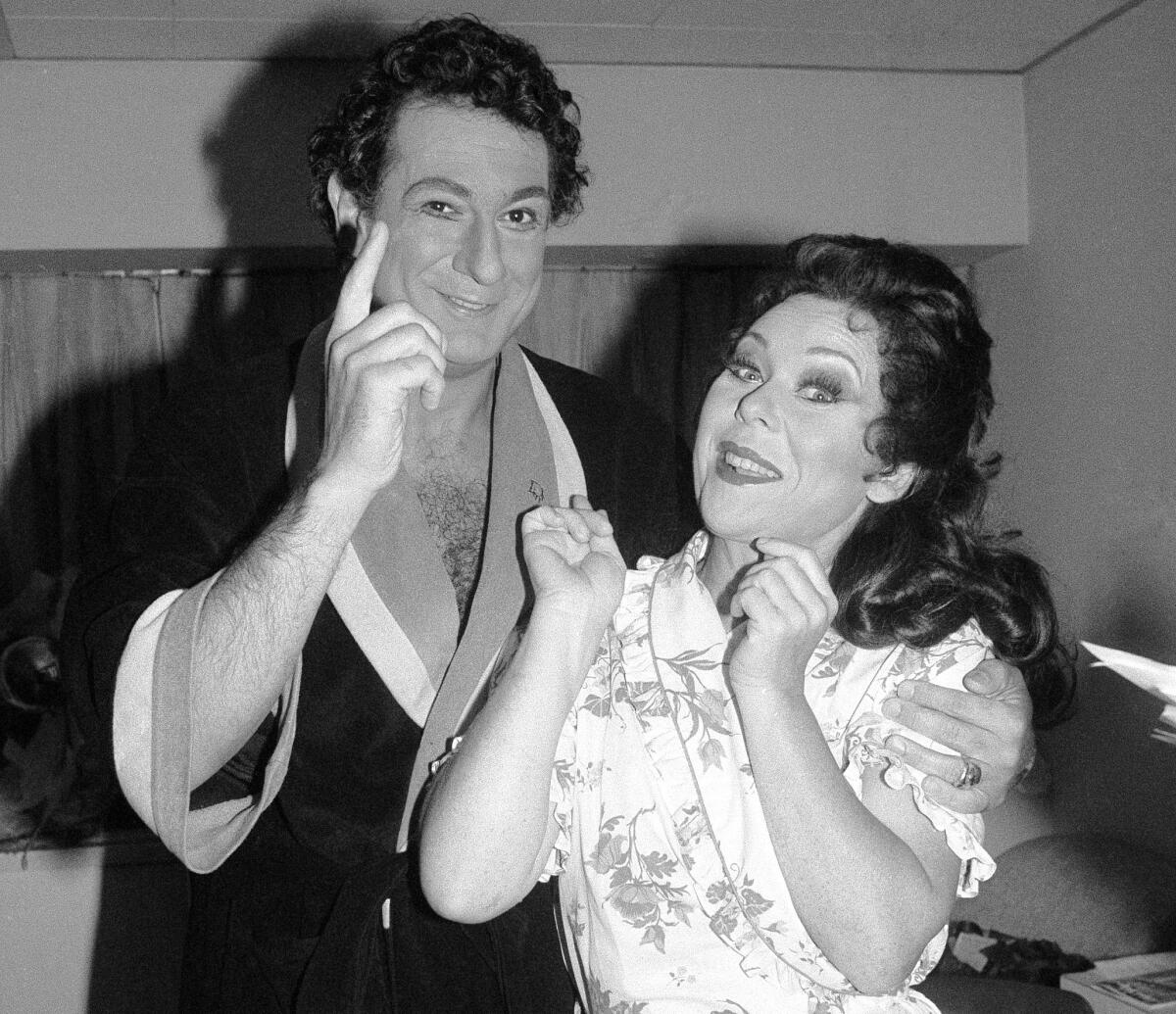Renata Scotto, an Italian soprano of uncommon intensity, dies at 89

Renata Scotto, a soprano of uncommon intensity who became a successful director after her singing career, died Wednesday in her hometown of Savona, Italy. She was 89.
Scotto’s New York-based manager, Robert Lombardo, said he was called by her family and informed of her death. “I had spoken to her several weeks ago and I didn’t get any any indication that anything was going on,” he said.
Scotto maintained homes in Italy and Armonk, N.Y.
Los Angeles Opera Off Grand presents two gritty new Irish operas, “Trade” and “Mary Motorhead” by Emma O’Halloran, about a closeted rent boy and a murderer.
“Renata Scotto is a true artist and profound connoisseur of voice and repertoire, gifted with technique, musicality, a personality of a rare power, always at the service of the composer, and able to emotionally stir the public in all the world in every phase of her long career,’’ soprano Cecilia Gasdia, superintendent of Italy’s Fondazione Arena di Verona, said in a statement.
Scotto made 314 appearances at the Metropolitan Opera, from her debut in Puccini’s “Madama Butterfly″ on Oct. 13, 1965, to her finale, also as Cio-Cio-San, on Jan. 18, 1987. She also directed during her final run, and that became her new profession.
“I like to live in the present,″ she said in a 2007 interview with the Associated Press. ”Of course, I watch my DVDs. I enjoyed every second of my career. Now I live with the young singers. I love them so much.″
Citing his family, Gustavo Dudamel announces his sudden departure as music director of Paris Opera, where he had been well received.
Born Feb. 24, 1934, in Savona, Scotto debuted there in 1952 as Violetta in Verdi’s “La Traviata” and sang the role the next day at Milan’s Teatro Nuovo.
She debuted at Milan’s Teatro alla Scala on Dec. 7, 1957, the opening night of the season, in the title role of Catalani’s “La Wally” alongside Mario Del Monaco, with Carlo Maria Giulini conducting.
When Scotto made her Met debut, the New York Times headlined her as a new star.
Nearly two decades after L.A. Opera staged a memorable production of ‘Pelléas et Mélisande’ directed by Peter Sellars, the company is back with a new rendition of the opera.
“She is short, on the plump side, with a round face that is remarkably expressive,” Raymond Ericson wrote. “She is a lyric coloratura, with a relatively small voice that carries in a big auditorium by virtue of its concentrated tone. And she is a complete actress, in voice and movement.”
When Scotto sang the title role in Bellini’s “Norma” on the opening night of the Met’s 1981-82 season, she was booed by Maria Callas fans who were opposed to anyone else singing the role.
She starred alongside Luciano Pavarotti in the first “Live From the Met” telecast in 1977, of Puccini’s La “Bohème.”
As the end of her singing career approached, Scotto turned to directing.
Norman was an international opera star whose passionate soprano voice won her four Grammy Awards, the National Medal of Arts and the Kennedy Center Honor.
“I love it. It’s completely different, of course,” she told the AP. “There’s more responsibility — you have responsibility for everybody — the stage, the scenery. It’s another perspective. You see the show differently.″
When soprano Deborah Voigt took on the title role of Puccini’s ″Tosca″ for the first time, at the Florida Grand Opera in 2001, Scotto was her director.
″The thing that was really most impressive is that she didn’t try to put her stamp on it,″ Voigt said. ″She led me through it and helped me find my way though the role and my Tosca, which is different from Renata Scotto’s.”
Scotto is survived by daughter Laura Anselmi Miller, son Filippo Anselmi and two grandchildren. Lombardo said funeral arrangements were not yet set. Her husband, Lorenzo, died in 2021.
Associated Press writer Frances D’Emilio in Rome contributed to this report.
More to Read
The biggest entertainment stories
Get our big stories about Hollywood, film, television, music, arts, culture and more right in your inbox as soon as they publish.
You may occasionally receive promotional content from the Los Angeles Times.














